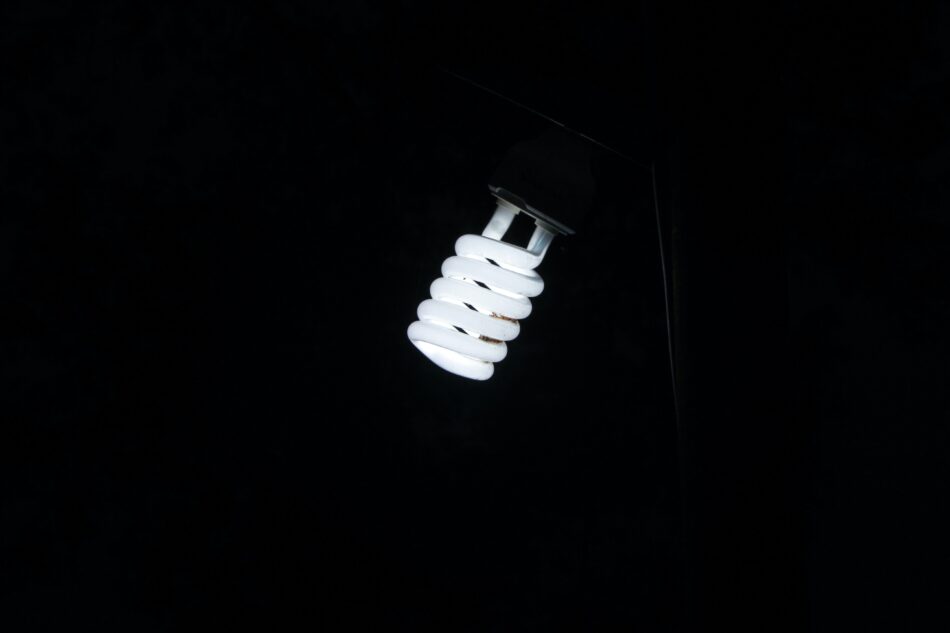Prepare Your Business for New Food Waste Legislation in the UK
From 31 March 2025, most UK businesses must arrange separate food waste collections. Learn and prepare for the new food waste legislation in the UK.

Energy-saving light bulbs are growing in usage across homes and businesses to reduce the amount of electricity needed to illuminate rooms. But how do you dispose of energy-saving halogen and LED light bulbs once they reach the end of their life? After saving all that energy you want to continue along an environmentally friendly path.
Whether your energy-saving halogen or LED light bulbs have flickered off for the last time, it’s important you get rid of them in a safe and green manner. Discover everything you need to know about energy-saving light bulb disposal and recycling below.
The initial inventor of the energy-saving bulb was a man named Ed Hammer, who created the early spiral-shaped energy-saving bulbs. After his early work, many other companies have taken his designs and further perfected them. This has led to current energy-saving bulbs being brighter and saving even more energy during their usage than their predecessors.
Energy-saving light bulbs are mainly made from a glass shell and metal wiring. They also use a very small amount of mercury in the production process. These bulbs are made by filling a tube or bulb with a mix of gases and then providing them with a charge, leading to the production of light.
There are a range of different energy-saving bulbs available, which affects how you should dispose of them:
Learn more about how to dispose of light bulbs
To recycle energy-saving light bulbs used in your home you normally have to visit a dedicated recycling centre in the UK. Many of these have specific bins or containers for halogen, LED, and even CFL bulbs that are energy saving. They cannot be recycled with your glass recycling due to the wires they contain.
As a business, you can arrange collection of your old energy-saving bulbs for recycling. Contact us online or call 0800 211 8390 and we can arrange collection, removal, and recycling of your old energy-saving bulbs – wherever your business is in the UK.
Incorrect disposal of energy-saving compact fluorescent lamps (CFLs) can cause problems due to the nature of the gases included in the composition of the bulb. Gases such as mercury are highly toxic, and although they’re ok in small quantities, when ending up in landfill these chemicals have the potential to severely contaminate the land they sit on.
Energy-saving halogen and LED lights don’t have these issues, but CFL bulbs require care and attention in disposal. Plus, many of the specific elements used in the manufacture of energy-saving bulbs are highly valuable. This includes mercury, phosphorus, glass, and metal.
To recoup some of the raw material value of an energy-saving bulb, they need recycling in a specific way. By sending them to landfill, a significant amount of both land and commodity value is lost.
Energy-saving bulbs are an alternative to traditional light bulbs, designed to save electricity and money to light up your home or workplace. To make your disposal easier but avoid saving energy and the environment around you, you could always opt for standard bulbs. However, you’d use more energy and spend more on your bulbs but avoid the hassle of recycling and disposal.
You could consider LED lighting. LEDs use a minimal amount of power, have a long life and are renowned for their ability to change colour. This is an excellent option to reduce waste and improve the ambience of your home, although the operating life may not be as long as a halogen lamp.
A few key facts about energy-saving bulbs are that:
While energy-saving compact fluorescent lamps aren’t recyclable, you can recycle both halogen lamps and LED lamps with household waste (check with your local authority first) or via specialist recycling centres. Recycling them in your household waste is completely free. However, attempting to recycle them at a specialist centre may come with a fee due to the expensive equipment used in the disposal process.
Find out more about other rubbish streams.
Get a fast FREE quote for your bulb waste
From 31 March 2025, most UK businesses must arrange separate food waste collections. Learn and prepare for the new food waste legislation in the UK.
The study participants included business owners and company employees, revealing unexpected findings about corporate environmental practices.